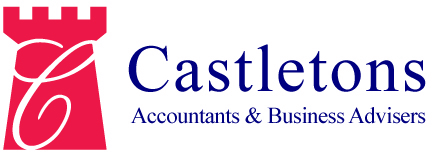Latest News
When it comes to compliance by SMSF trustees with super laws, the ATO’s main focus is on encouraging trustees to comply with the super laws. However, there are occasions when stronger responses are required.
Trustees of SMSFs should be aware that COVID relief measures that were previously in place have now ended. The relief measures applied for the 2019-20, 2020-21 and 2021-22 years but expired on 30 June 2022. As such, the ATO now expects SMSF trustees to comply with all their obligations under the tax and super laws previously covered by the relief measures.
Businesses that have made payments to contractors for certain services in the 2021-22 income year are required to lodge a Taxable Payments Annual Report (TPAR) by 28 August 2022. This includes businesses that made payments to contractors or subcontractors for building and construction services, cleaning services, courier services, road freight services, IT services, and security, investigation or surveillance services.
In good news for trustees of SMSFs and after much community consultation, transfer balance account event-based reporting (TBAR) will soon be streamlined for convenience. The current event based reporting framework for SMSFs commenced from 1 July 2018 and facilitated the administration of the transfer balance cap by the ATO. SMSFs were generally required to start reporting when its first member commenced a retirement phase income stream.
Recently, the ATO released a protocol document which contains its recommended approach for identifying communications covered by Legal Professional Privilege (LPP) and making LPP claims. As a part of ATO’s formal information gathering powers, it can compel taxpayers to provide various information and documents. However, information and documents where the underlying communication is privileged do not have to be provided.
If you run a professional services firm there are many tax issues to consider in the allocation of profits. The ATO is particularly concerned about individual professionals with an ownership interest who redirect their income to an associated entity, such as a trust, with the effect of significantly reducing their tax liability – raising the prospect that anti-avoidance provisions could apply. From 1 July 2022, new guidelines explaining the ATO’s compliance approach to profit allocations will commence. These guidelines assist taxpayers to identify their particular risk level and understand whether their profit allocation arrangement may attract attention from the ATO.
You are legally required to keep records of all transactions relating to your tax and superannuation affairs as you start, run, sell, change or close your business, specifically:
Tax time 2022 is fast approaching, and this financial year, the ATO will again be focusing on a few key areas to ensure that individuals are doing the right thing and paying the right amount of tax. These key areas are considered by the ATO to be problem areas where individuals make the most mistakes.
The ATO has recently updated its Law Administration Practice Statement on debt relief, waivers and non-pursuit of debt. Specifically, the Practice Statement provides guidance on the Commissioner’s discretion to not pursue the recovery of tax debts, and ATO’s ability to release individual taxpayers from their obligation to pay certain tax-related liabilities.
The PAYG instalment system allows a business to spread its income tax liability across the tax year. This helps with cash flow, but also means the business is not faced with a large tax bill after the end of the tax year.
Due to COVID-19, trustees of an SMSF, or a related party of the fund, may provide or accept certain types of relief, which may give rise to contraventions of the super laws. You may also have been stranded overseas because of travel bans, which can affect your fund's residency status. In recognition of these issues, the ATO is offering support and relief to SMSF trustees for the 2019–20, 2020–21 and 2021–22 income years.
The temporary 50% reduction in minimum annual payment amounts for superannuation pensions and annuities has been extended by a further year to 30 June 2023. This temporary measure was first introduced by the government in response to the COVID-19 pandemic causing significant losses in financial markets, which negatively impacted account balances of super and pension/annuity of many retirees.












